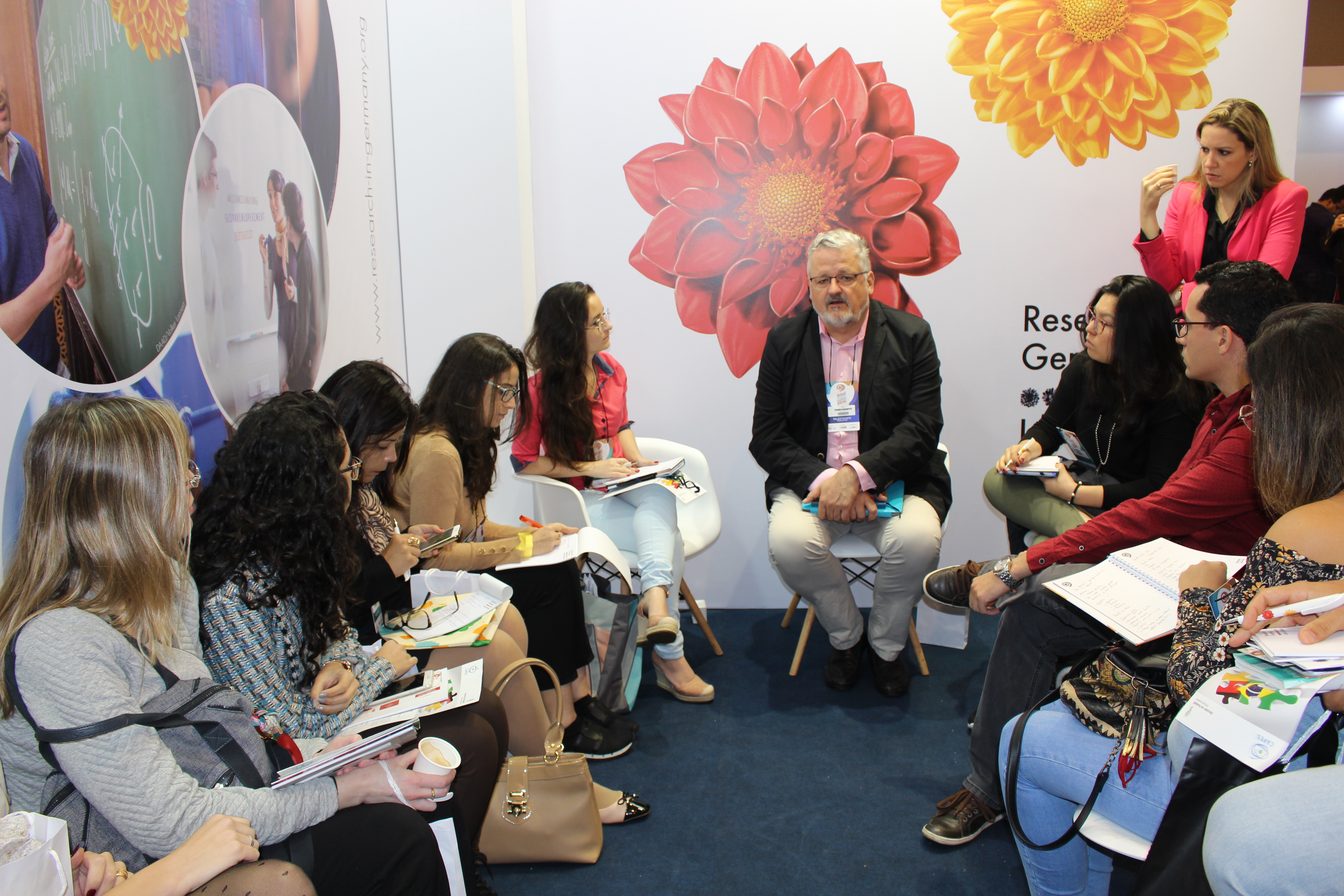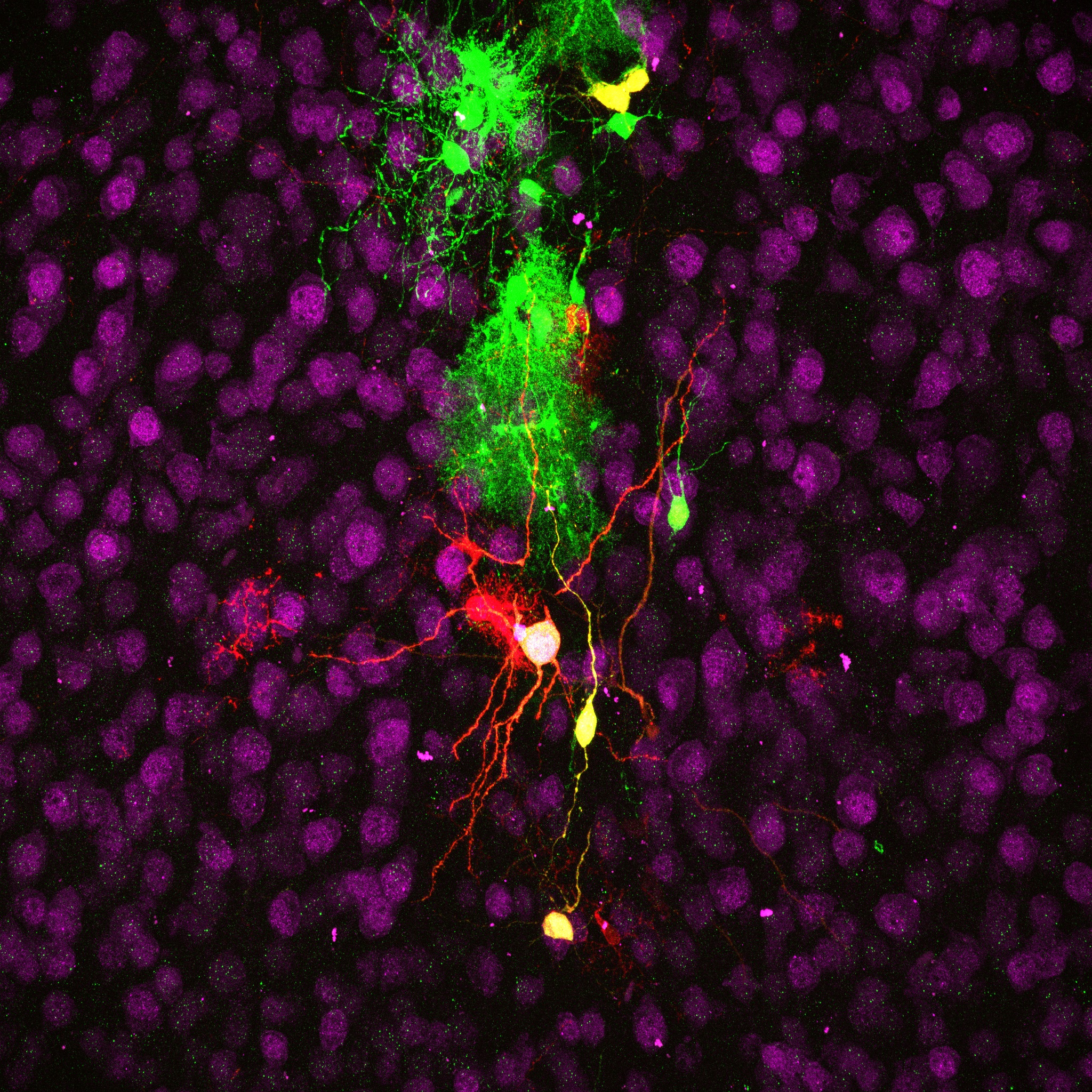Specialist Conference Highlights Potential for Cooperation in Neuroscience
(24.06.19) At the international conference on "Brain, Behavior and Emotions" researchers had the chance to find out about opportunities for research and cooperation in Germany. The interdisciplinary conference, with more than 4,000 participants from the fields of medicine, neuroscience, pharmacology and psychology, took place from 5 to 8 June in Brasilia. The DFG Office Latin America organised a Research in Germany presentation at the event: DFG and DAAD representatives provided in-depth information on the German research landscape, opportunities for international researchers and the related funding throughout the conference.

Prof. Dr. Schläpfer in conversation with early career researchers at the stand
© DFG
Furthermore, those interested were invited to speak with researcher Prof. Dr. Thomas Schläpfer, Head of the Division for Interventional Biological Psychiatry at the Department of Psychiatry and Psychotherapy of University Hospital Freiburg, at a Meet the Speaker stand. Around 25 people found out more about Schläpfer's research work and received first-hand information and advice on career opportunities in Germany.
The event format, held for the first time by the DFG Office Latin America, was very positively received. "Such conferences often lack opportunities for contact with renowned scientists, and this event allowed us to approach a well-established foreign researcher. We also gained an insight into Germany as a research location. I found it to be a very valuable experience," says pharmacologist Dr. Quelen Garlet, who teaches at the Federal University of Rio Grande (FURG).
Schläpfer was impressed by the high level of interest and the existing potential for cooperation with Brazil: "This conference presents a high level of academic quality, and the Brazilian researchers are also highly motivated and competitive, which are essential prerequisites for an international career in research."
Neuroscience is a field that is generally particularly well suited to international cooperation. The complexity of the brain has puzzled the research sector for decades and researchers all over the world have been looking for answers – an undertaking involving wide-ranging expertise and, generally speaking, intensive international cooperation.
One example of this is a German-Argentine project studying the process by which nerve cells are produced, known as neurogenesis. The project has been funded by the DFG and its partner organisation CONICET since 2018.

Induced neurons (in yellow) and glial cells (in red and green) in the cerebral cortex of a mouse
© Dr. Nicolás Marichtal
The bilateral initiative facilitates cooperation between German researcher Prof. Dr. Benedikt Berninger, specialist in the field of development and maturation of neural stem cells, and the Argentine expert in the reprogramming of cells, Dr. Alejandro Schinder.
"When the brain becomes damaged, its ability to recover is limited. In the event of a stroke, for instance, nerve cells die off but new ones are not produced, and we are looking at ways to change this," explains Berninger, who works at the Institute of Physiological Chemistry of the University Medical Centre at Johannes Gutenberg University Mainz.
The experiments carried out on the cerebral cortex of mice in the course of the project could help to develop new clinical therapies in future.
At the Leloir Institute in Buenos Aires, the working group of Dr. Schinder concentrates on the cerebral region of the hippocampus, where new nerve cells are produced over the course of a lifetime. The processes in which neural stem cells produce neurons, how these integrate into the existing network and the factors that influence integration are being studied. These neurons mature at a certain speed and the rhythm can be induced and accelerated by changing conditions and specific impulses. The team in Argentina is analysing the process behind this and to what extent the properties of the new cells are influenced as a result,
whereas the German team is researching the regions of the cerebral cortex where no new neurons are produced. Berninger and his colleagues in Mainz managed to convert other cells into neurons using molecular processes – this process is called reprogramming. "Neurons formed in this way are not yet matured. As part of the project, we would like to utilise the expertise of Dr. Schinder and test whether the maturation of induced neurons in cerebral regions where neurogenesis does not occur naturally, can be optimised. Our work could help to pave the way for damaged nerve cells to be replaced with new ones," explains the German project coordinator.
Schinder stressed that such cooperation is only made possible by international orientation: "There are no limits when it comes questions about nature and biology. International cooperation allows a topic to be addressed using various approaches and ways of thinking – all those involved make a contribution and broaden the scope for questions with their perspectives rooted in their culture and environment."